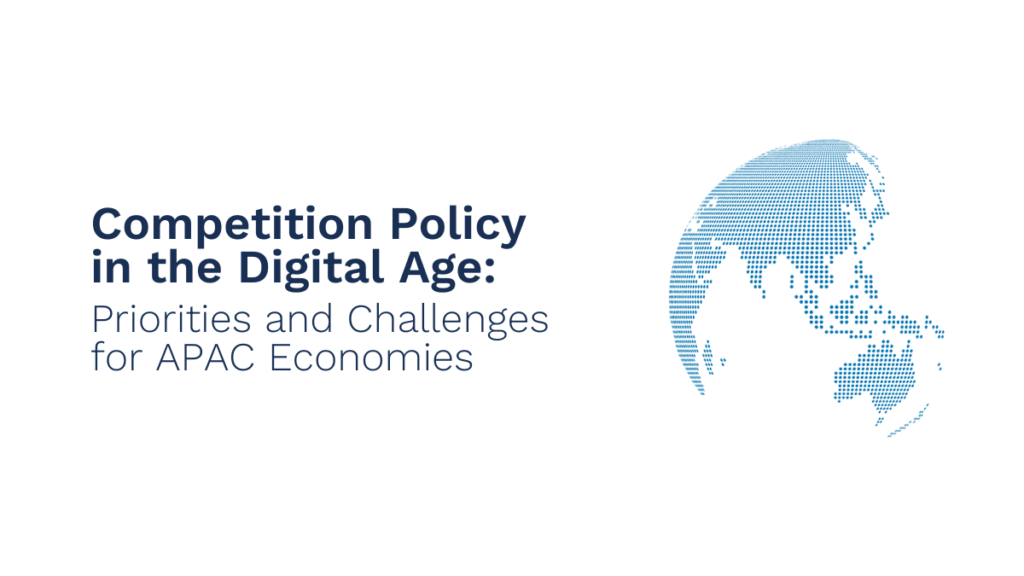

On Monday 9 October 2023, experts from diverse backgrounds convened to discuss digital policy approaches and priorities for the Asia-Pacific (APAC) region.
The discussion was framed around the distinct economic, legal, and political landscapes of APAC countries, including the presence of local digital champions. From this starting point, the panel considered the influence of international regulatory approaches, in particular from the European Union (EU), which is seen as a first mover in the digital policy space. The panel also considered whether APAC countries offered examples of distinct policy approaches that could inform discussions across borders.
Moderated by James Panichi, APAC Senior Editor at MLex, the session included Kirsten Webb from Clayton Utz in Australia, Yan Yu from RBB Economics’ Singapore office, Masayuki Atsumi from Miura & Partners, Japan, and Dr. Andy Chen from Taiwan FTC. The webinar was supported by Amazon.
Key Takeaways:
- The importance of local contexts: The panellists recognised that APAC is home to some of the world’s most dynamic and rapidly- digitising economies. It is also characterised by a wide range of legal, economic, and political models that have taken shape based on local conditions. In this context, a broad, one-size-fits-all approach to digital regulation is unlikely to be feasible nor sustainable for the region. Rather, the various economies in the region need approaches that accommodate local dynamics, business models, market structures, legal frameworks, and homegrown digital champions – all of which are very different from what is seen in Europe or the United States.
- The effectiveness of new regulations: The panellists highlighted that issues associated with digitising economies can be addressed by existing policy and regulatory frameworks. New measures copied from Europe were not seen as necessary in the region. Panellists noted that, within the APAC region, there are already different regulatory models, which have taken a different approach to balancing innovation and regulation.
- The need to support innovation and investment: The panellists agreed that for Asia’s digital economies to remain vibrant and competitive, it is important to exercise caution with respect to approaches that might seek to ‘cut and paste’ international regulatory frameworks into very different local contexts. For example, there was a risk that pursuing ‘ex ante’ regulatory models such as that being implemented in the EU without taking local contexts and dynamics into account could hamper the growth and evolution of new technologies and solutions.
Overall, the Access Partnership webinar provided a comprehensive overview of the challenges and priorities related to digital policy and regulation, with a focus on making laws, policies, and regulations work for APAC’s specific context.
For those who missed the live webinar or wish to revisit the discussions, the recording is available on the Access Partnership YouTube channel: https://youtu.be/ABxvD7J4FYc?si=FDJvY-OwxmG7ds02